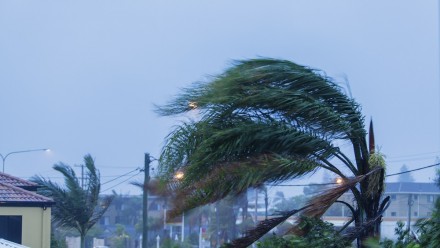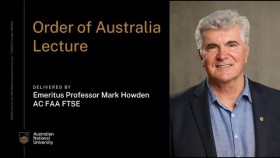ANU kick-starts transformational research into climate, energy and disasters, thanks to Seed Funding Grant
Transformational research into the growing challenges of climate change, the energy transition and disasters has received a boost, thanks to funding from The Australian National University (ANU), administered by the ANU Institute for Climate, Energy and Disaster Solutions (ICEDS).
The Institute has announced that nine ANU research projects have been successful in securing grants totalling over $160,000 to support novel, additional research across climate, energy and disaster-risk fields, under its inaugural Seed Funding Grant initiative.
Director and Head of Climate Change at ICEDS, Professor Mark Howden, says that the funding will help to build capacity across the University in these vital areas of research.
“These grants will help to kick-start cross-disciplinary research into climate, energy and disasters across ANU, as well as contribute to the University’s strategic goals including conducting research that transforms society and creates national capability,” he said.
Over 100 researchers across ANU were involved in applications for the funding. The successful projects focus on a broad range of complex research areas that include technical, scientific and social approaches to addressing these challenges. Chief Investigators for these projects represent five of the University’s seven teaching Colleges.
Professor Howden says that the opportunity for ANU to fund these projects is largely due to external income generated by ICEDS.
“We are delighted to be reinvesting this income back into ANU researchers from all over the University, helping build the University’s capacity to conduct research that tackles these complex issues,” he said.
Two additional projects will be supported through ANU Below Zero, to help transition ANU to being part of the solution to reducing emissions below zero.
The nine projects are:
|
Project |
Chief Investigator and team |
|
Development of a roadmap for a socially just energy transition within the agricultural sector |
Lachlan Blackhall Martin Amidy, Rebecca Craine, Ruth Kravis, Anna Skobeleva, Maia Gould, Darren Halpin. |
|
Australia’s psychology workforce capacity |
Emily Macleod Iain Walker, Bruce Christensen, Lisa-Marie Greenwood, Alison Calear, Jo Lane, Julia Reynolds. |
|
An Agenda for Australian Research on Climate & Energy Security |
Jessie Moritz Chris Barrie, George Carter, Kirill Nourzhanov. |
|
AI Generation of Cyclone Data via Learned Physical Constraints |
Navid Constantinou Zhisong Qu , Matthew Hole , Jack Miller and Charles O’Neill. |
|
Partner’s influence on mother and child mental health following climate crisis: a missing link in the MC2020 cohort |
Liana Leach Amita Bansal, Amy Dawel, Dave Pasalich, Emily Macleod, Karlee Johnston, Katelyn Barnes, Dr Nikolay Shirokikh, Bruce Christensen, Christopher Nolan, Nicolas Cherbuin, Riccardo Natoli, Sotiris Vardoulakis. |
|
Maximizing co-benefits through measurement reporting and verification (MRV) baselines for carbon removal projects in low-lying Pacific Island Countries |
Sara Beavis and Nicholas Metherall Aparna Lal, Janelle Stevenson, Dr Rebecca Hamilton, Dr Bruce Doran. |
|
Inclusive Adaptation? The perspectives of climate-affected communities in the Sundarbans, India. |
Annabel Dulhunty and Kuntala Lahiri-Dutt Evelyn Goh, Alison Behie, Ms Rachel England, Professor Christian Barry, Maria Tanyag, Rebecca Pearse, Mandy Yap. |
|
Experimental study on hybrid hydrogen direct and plasma reduction of iron ore |
Alireza Rahbari John Pye, Cormac Corr, Maryna Bilokur. |
|
Hydrogen Generation from Widely Available Inorganic Materials |
Ilya Shadrivov and Vladlen Shvedov |
The ANU Below Zero projects are:
|
Project |
Chief Investigator and team |
|
Utilising solar-thermal energy for carbon sequestration |
Mahdiar Taheri Juan Felipe Torres, Ana Casas Ramos, Mona Mahani, Penny King, Ben Corry. |
|
Shared electric vehicle charging hubs at ANU |
Bjorn Sturmberg Alix Ziebell, Lee White. |











